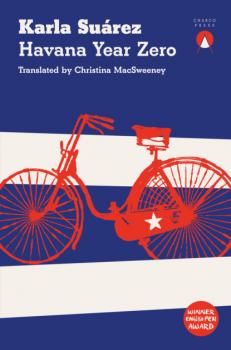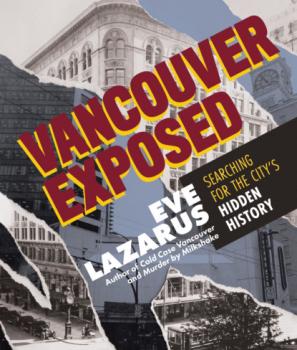Ingram
Все книги издательства IngramEmpire of the Senseless
The 30th Anniversary Edition, with a new introduction by Alexandra Kleeman, author of the novel You Too Can Have a Body Like Mine and the story collection Intimations Chris Kraus’s biography, After Kathy Acker , was published to wide acclaim, with coverage prominently featuring photographs of Acker, sparking a renewed interest in the cult icon Our Anniversary Edition of Acker’s Blood and Guts in High School —the corrected text, with an introduction by Kraus—was published in November More Acker reissues are forthcoming, including Great Expectations and [/i]Essential Acker: the Selected Writings of Kathy Acker[/i]
Blood and Guts in High School
A masterpiece of surrealist fiction, steeped in controversy upon its first publication in 1984, Blood and Guts in High School is the book that established Kathy Acker as the preeminent voice of post-punk feminism. With 2017 marking the 70th anniversary of her birth, as well as the 10th year since her death this transgressive work of philosophical, political, and sexual insight—with a new introduction by Chris Kraus—continues to become more relevant than ever before. In the Mexican city of Merida, ten-year-old Janey lives with Johnny—her “boyfriend, brother, sister, money, amusement, and father”—until he leaves her for another woman. Bereft, Janey travels to New York City, plunging into an underworld of gangs and prostitution. After escaping imprisonment, she flees to Tangiers where she meets Jean Genet, and they begin a torrid affair that will lead Janey to her demise. Fantastical, sensual, and fearlessly radical, this hallucinatory collage is both a comic and tragic portrait of erotic awakening.
Pussy, King of the Pirates
A retelling of Robert Louis Stevenson’s Treasure Island, Pussy, King of the Pirates is a dizzyingly imaginative foray through world history, literature, and language itself.
Havana Year Zero
It was as if we’d reached the minimum critical point of a mathematical curve. Imagine a parabola. Zero point down, at the bottom of an abyss. That’s how low we sank. The year is 1993. Cuba is at the height of the Special Period, a widespread economic crisis following the collapse of the Soviet bloc.For Julia, a mathematics lecturer who hates teaching, this is Year Zero: the lowest possible point. But a way out appears: the search for a missing document that will prove the telephone was invented in Havana, secure her reputation, and give Cuba a purpose once more. What begins as an investigation into scientific history becomes a tangle of sex, friendship, family legacies, and the intricacies of how people find ways to survive in a country at its lowest ebb.
A Perfect Cemetery
"His stories shimmer like revelations – the clarity, mystery, beauty, depth, and sheer, thrilling peculiarity of ordinary life when the veil lifts. They’re exhilarating to read, just as exhilarating to re-read." —Deborah Eisenberg Childhood does not last long in the Argentine mountains of Córdoba, and adult lives fall apart quickly. In disarming, darkly humorous stories, Federico Falco explores themes of obsessive love, romantic attachment and the strategies we must find to cope with death and painful longing.In the middle of a blizzard a widow watches the ruin of her late-husband’s garden, until suddenly she sees a woman running naked in the falling snow. After telling her parents she is abandoning her Christian faith, a girl becomes infatuated with a Mormon missionary who reminds her of a boy killed in her village years before. When his family’s home is lost, a father desperately offers his daughter’s hand in marriage to anyone who will take them in. And a town’s mayor tries to fulfill his father’s dying wish – to design the perfect cemetery.
Vancouver Exposed
As a journalist, Australian-born Eve Lazarus has become adept at combining her well-honed investigative skills with an abiding love for her adopted city. These qualities are on full display in her latest book, an exploration of Vancouver’s hidden past through the city’s neighborhoods, institutions, people, and events. Vancouver Exposed is a nostalgic romp through the city’s past, from buried houses to nudist camps, from bellyflop contests to eccentric museums. Featuring historic black-and-white and color photographs throughout, the book reveals the true heart of the city: one that is endlessly evolving and always full of surprises. With equal parts humor and pathos, Vancouver Exposed is a vividly entertaining and informative book that pays homage to the Vancouver you never knew existed.
Arborescent
• This debut novel was recommended to us by Joshua Whitehead, author of the Lambda Literary Award-winning novel <i>Jonny Appleseed</i>. <i>Arborescent</i> is Marc Herman Lynch’s debut novel; he is the president of the Calgary literary magazine filling station and a literary organizer. He has an MA in Creative Writing from the University of Calgary currently works at Mount Royal College as a writing and learning strategist. He identifies as mixed-race (Chinese/French).<br> • <i>Arborescent</i> is a striking novel both in content and form. Divided in three sections, the book focuses on three individuals whose stories interconnect with one another: a cis-gender, white male named Nohlan Buckles who turns into a tree after his father inexplicably explodes; a first-generation immigrant named Hachiko Yoshitoshi, whose staging of Yotsuya Kaidan causes the ghost of this kabuki to manifest; and a second-generation immigrant teenager named Zadie Chan, who unwittingly begins to produce doppelgangers as she tries to reconcile family divisions. Their startling stories delve deep into the concept of “otherness” and its physical and psychological manifestations in racialized bodies.<br> • In his own words: “I wrote this book to explore the reality of immigrant characters, those who were born within Canada and are disconnected from their culture. My parents escaped their respective cultures, and tried to reframe themselves within Canada but were always being singled out, whether due to their accents, skin colour, or both. My reframing now originates from a lack: a space of uncertainty, an absence. I am both identifiable and non-identifiable: called white when it suits one and BIPOC when it suits another. It seems I can make no claim for space, and I can neither see myself as identifiable nor invisible (something that my parents probably hoped for me, which is why they refused to give me a Chinese name or one that would be, at face value, too identifiably French). This thought process has led me to realize that there are very few representations of us alienated immigrants, especially those that record the everyday realities of our lived experience: how do we negotiate these waters? Our story is so much more than just just reconciling identity or the conflict between host and home countries!”<br> • Blurbs by Lambda Literary Award winners Joshua Whitehead and Larissa Lai, among others.<br> • As an absurdist, highly contemporary novel that speaks to the immigrant experience, <i>Arborescent</i> will attract a great deal of attention.<br> • This book will appeal to those interested in BIPOC literature and fantastical fiction. The age range will likely skew younger than older (i.e., under 50).
Sustainable. Resilient. Free.
In 1983, U.S. News and World Report started to rank colleges and universities, throwing them into competition with each other for students and precious resources. Over the course of the next thirty or so years, everything fell apart. A Reagan-era ethos of privatization and competition has turned students into consumers and colleges into businesses. Tuition is unaffordable. Student loan debt is more than $1.6 trillion, and a majority of college faculty work in adjunct positions for low pay and with no security. Colleges exist to enroll students, collect tuition, and hold classes. When learning happens, it is in spite of the system, not because of it. The coronavirus pandemic has laid bare what we already know: the current system is unsustainable. We have forgotten that education is infrastructure, and are paying a high price for this wrong turn thirty-plus years ago. In Sustainable. Resilient. Free. , author and educator John Warner maps out a way forward, one by which our public colleges and universities are reoriented around enhancing the intellectual, social, and economic potentials of students while providing broad-based benefits to the community at large. As Warner explains, it’s not even complicated. It’s no more costly than the current system. We just have to choose to live the values we claim to hold dear.
The Post-Pandemic Liberal Arts College
Private liberal arts colleges have been struggling for decades; now, as the COVID-19 pandemic widens cracks latent in many American institutions, they are facing a possibly mortal crisis. In <em>The Post-Pandemic Liberal Arts College: A Manifesto for Reinvention</em>, Steven Volk and Beth Benedix call for small colleges to seize this moment and reinvent themselves. With the rise of rankings that set peer institutions against each other, tuition that outpaces income, creeping pre-professionalism, and a race to build student “customers” the splashiest new amenities, many private liberal arts colleges have strayed from their founders’ missions. If they could shed the mantle of exclusivity, reduce costs, facilitate true social mobility, and collaborate with each other, the authors argue, they might both survive and again become just, equitable, accessible institutions able to offer the transformative and visionary education that is their hallmark.









